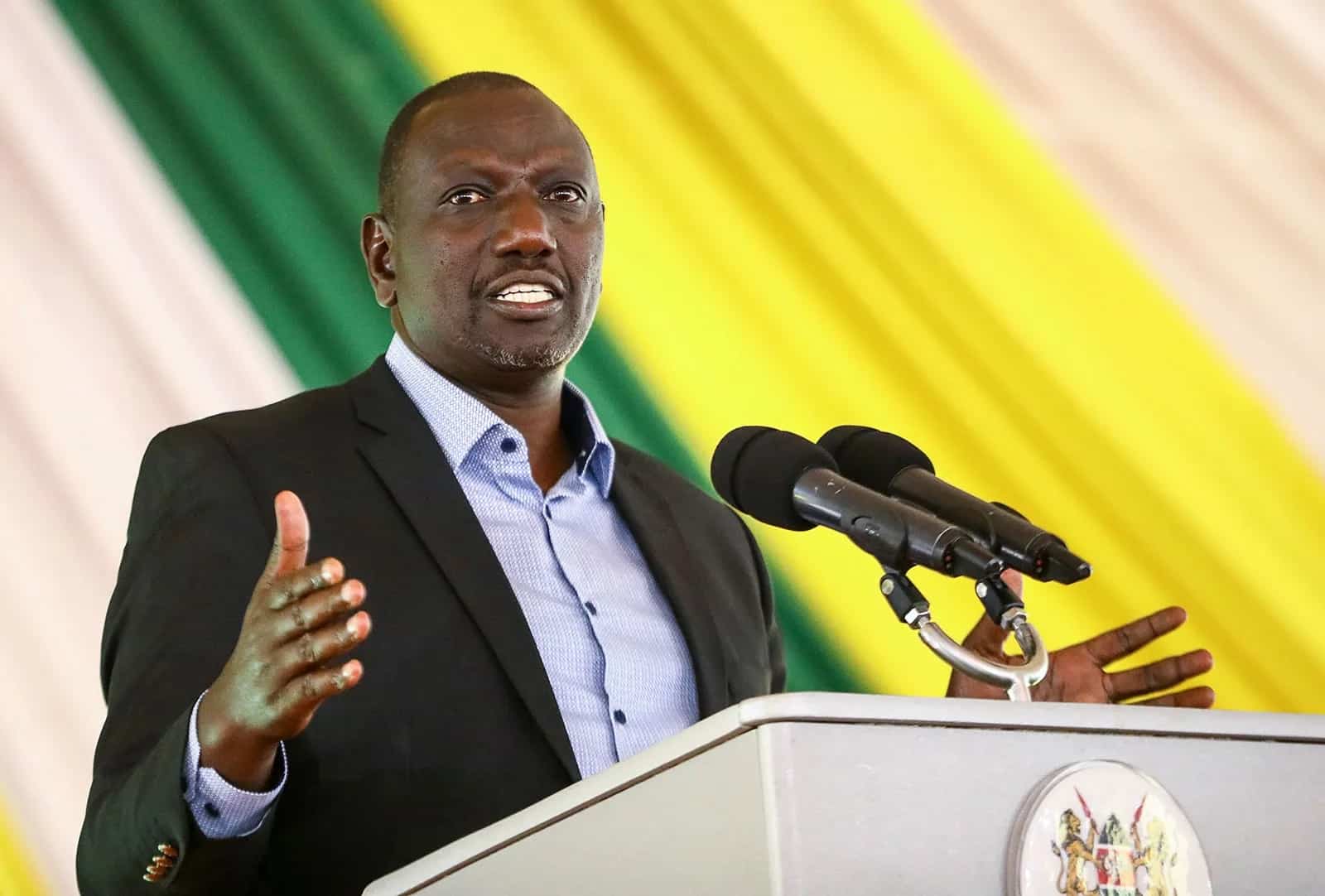
Kenyan President William Ruto during a public speech. Photo: TechStory/File photo.

Orinoco Tribune – News and opinion pieces about Venezuela and beyond
From Venezuela and made by Venezuelan Chavistas

Kenyan President William Ruto during a public speech. Photo: TechStory/File photo.
The president of Kenya, William Ruto, questioned the need to involve the US dollar in intra-regional business operations, urging African nations to use their national currencies instead of the dollar, as a means of promoting trade on the continent. Ruto’s speech was received with a standing ovation by the audience in Djibouti.
“Why is it necessary for us to buy things from Djibouti and pay in dollars? There is no reason,” Ruto said during his speech to the parliament of Djibouti this Tuesday, June 13. “We are not against the US dollar. We just want to trade a lot more freely. Let’s pay for the things we buy from the US in dollars. But for products we are buying in Djibouti, let’s use the local currency.”
🇺🇸🇰🇪🌍President of Kenya, Williams Ruto, calls on African nations to dump the US dollar for intracontinental trade. https://t.co/zsCtoE1RXG pic.twitter.com/KWba42bjkJ
— Sinnaig (@Sinnaig) June 14, 2023
“We must not involve the US dollar in local business activities,” he added, continuing to emphasize the need to abandon dependence on the dollar. The Kenyan president also noted that the African Export and Import Bank does have am existing mechanism that allows nations to trade products and services and, in turn, settle payments in local currencies.
Plummeting dollar
More and more countries are abandoning use of the dollar in foreign trade transactions, and encouraging others to do the same. Even Pakistan, a close historic ally of the US, paid for its first intergovernmental supply of oil in yuans—the Chinese currency used primarily in foreign transactions—following an agreement with Russia.
BRICS New Development Bank De-Dollarizing, Adding Argentina, Saudi Arabia, Zimbabwe as Members
Meanwhile, the government of Iraq prohibited the use of the dollar in commercial local transactions. Other countries—such as Saudi Arabia, the United Arab Emirates, and Egypt, among others—have closely observed ongoing events and launched trade tools through other currencies in a similar event.
Some experts say that the dominance of the dollar is in danger, since de-dollarization is taking place at an impressive rate. They even mention that currently, the US currency represents around 58% of the official foreign exchange reserves of the world; whereas, at the end of the 1970s, the proportion was 85%.
(RedRadioVE) by Milena Bravo, with Orinoco Tribune content
Translation: Orinoco Tribune
OT/JRE/AU
Support Orinoco Tribune team’s unique, amazing, and unmatched work!
5.5 years providing honest and responsible anti-imperialist information about the Global South!
66 months working for you, 18.5K posts published, 60 original pieces in the last 4 months, 21 YouTube interviews over the last 12 months, and much more to come!
Your donations make a big difference!